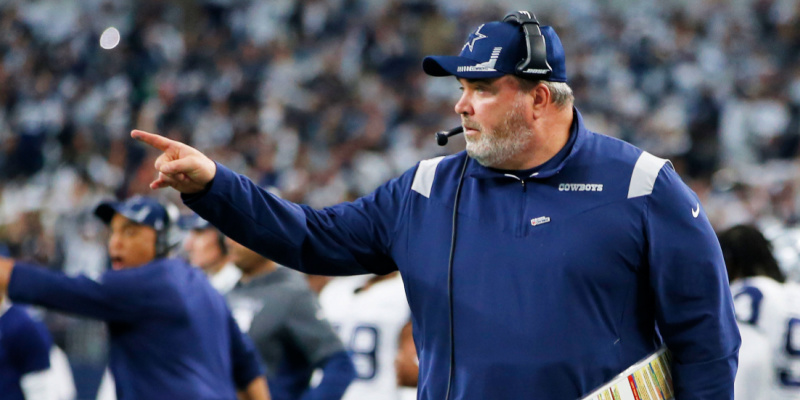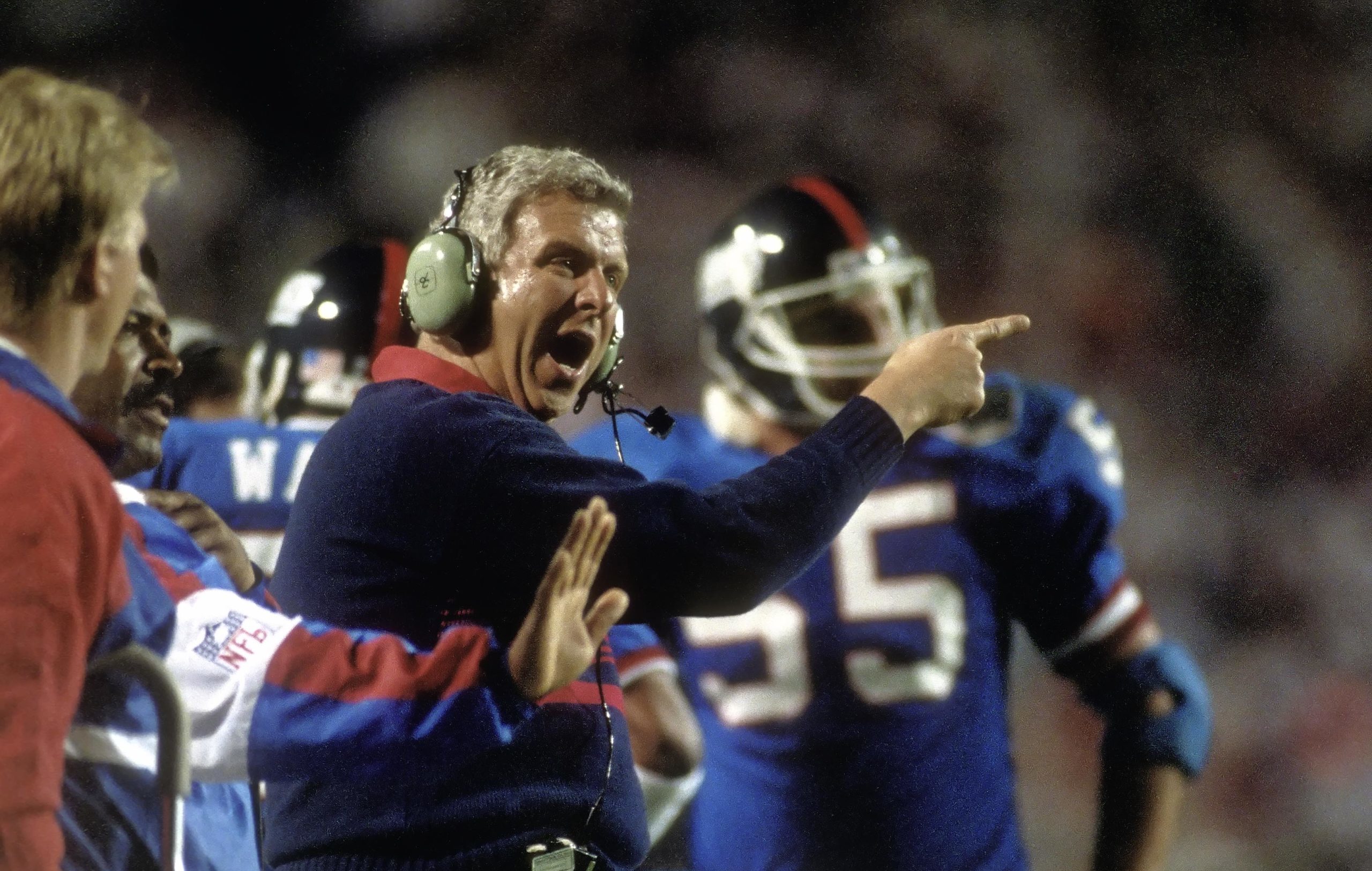Expert Analysis
1/17/22
4 min read
Breaking Down the Chaotic Final Minute of the Cowboys' Playoff Heartbreak

The final minute of the game between Dallas and San Francisco was incredibly chaotic, leaving much to be broken down. After Deebo Samuel’s 3rd down run was reviewed and deemed just short of the first down, San Francisco faced 4th down and less than a yard at the Dallas 38 yard-line with 40 seconds left. They lined up as if they would go for it before a false start backed them up. At this point, Dallas knows they will be getting the ball back with very little time left and needs to be preparing for this.
The whole offense needs to be on the same page at this point, but especially Dak Prescott, Kellen Moore, and Mike McCarthy. The circumstances are simple to understand and extremely difficult to work in: 32 seconds, 80 yards to go, and no timeouts remaining. The game plan for this drive needs to be completely clear between those three men because it will take something special to complete the comeback.
In a drive such as this one, the primary job and immediate focus is to get into Hail Mary range to get your team at least one chance to put the ball into the end zone and hope it works. The best process for this is to work the sidelines and take the yardage you can get while making sure to get out of bounds to stop the clock. Dallas did this extremely well between their hook and lateral play and two other short, sideline passes, reaching San Francisco’s 41 with 14 seconds left — easily Hail Mary range.
At this point, they decided on a QB draw to pick up some more yardage and they would then spike the ball and have one final play. With 14 seconds remaining, this is very risky, as you take the chance of the clock running out as it did. Ideally for this play, you would have at least 16 seconds, though in Dallas’ defense, it is possible to pull off with 14 seconds (though not foolproof and far from ideal). The key part of pulling it off under this circumstance is knowing the time needed to get the ball set so it can be spiked, and Kellen Moore and Dak Prescott needed to have this conversation on the sideline ahead of time if this was the plan.
Dak needs to leave at least 10 seconds on the clock when he slides down to allow time to set the ball and then spike it. When he began his slide, there were 9 seconds left on the clock, not enough time, but not the only reason time ran out on their season. The cardinal sin that Prescott committed is one that should’ve been drilled into his head to avoid for a long time. In this sport, everybody is taught to hand the ball to the referee at the end of a play because they must set the ball. The official was not “in the way” as many have complained because his job is to set the ball so it can be snapped. He made every effort to quickly to allow Dallas that chance, but his job was made more difficult by Prescott not handing him the ball at the end of his slide. Overall, the urgency and decision-making from Dallas broke down in the aftermath of Prescott's slide, and they ran out of time as a result.
In my time in this sport, I’ve worked with coaches such as Bill Belichick, Bill Parcells, Rex Ryan, and Eric Mangini, and every coach, no matter their philosophical differences, has agreed on the importance of drilling clock management and game situations, often as early on as May. The different permutations and possible scenarios are something I truly enjoy about our sport, but also something that you always need to be prepared for. Dallas simply didn’t seem well-drilled in this area, and it cost them. Whether another play would’ve changed the outcome will never be known, but they didn’t even give themselves that opportunity to potentially win the game.
Kevin Ivers contributed to this story









